The Benefits
With Docker, you can manage your infrastructure in the same ways you manage your applications.
서버마다, 개발자들이 사용하는 PC 마다 설치와 설정을 다르게 해야하는 번거로움을 해결해줌

The Features
- Docker provides the ability to package and run an application in a loosely isolated environment called a
container- Containers are great for continuous integration and continuous delivery
(CI/CD) workflows
- Containers are great for continuous integration and continuous delivery
The isolation and securityallows you to run many containerssimultaneouslyon a given host.Containers are lightweight and contain everything needed to run the application, so you do not need to rely on what is currently installed on the host.
- reference : https://docs.docker.com/get-started/overview/
Docker Architecture
- Docker uses a
client-server architecture
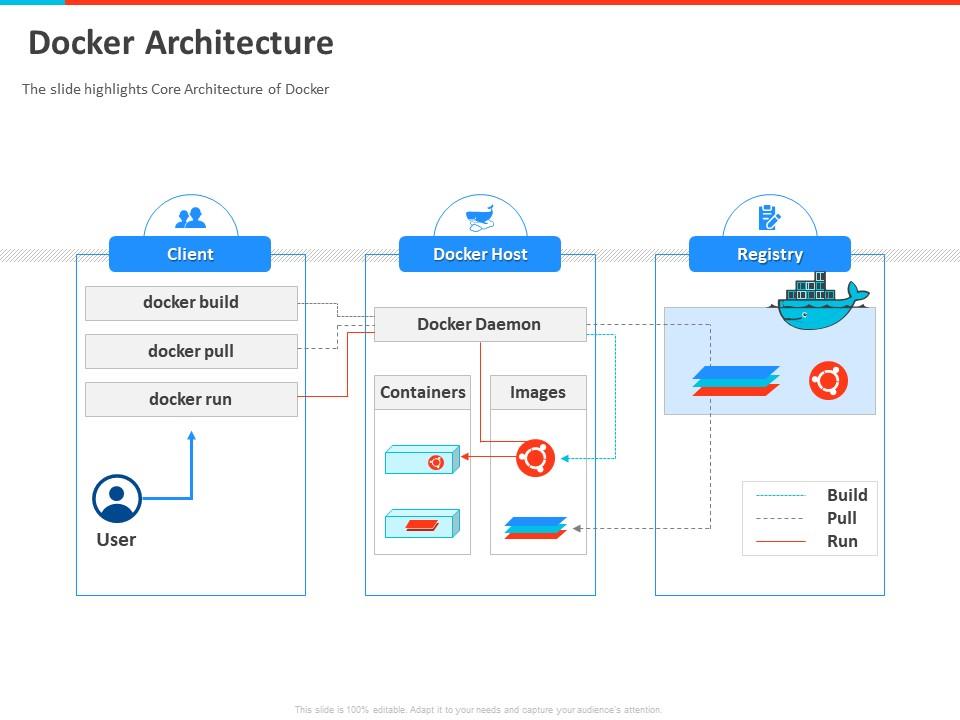

Docker Container Orchestraction : Docker swarm vs Kubernetes
Docker Swarm
Architecture

- A group of either physical or virtual machines that are running the Docker application and that have been configured to join together in a cluster. The activities of the cluster are controlled by a swarm manager, and machines that have joined the cluster are referred to as nodes.
- The key components of a Docker Swarm are Docker Nodes, Docker Services, and Docker Tasks.
Kubernetes
https://uzzing.github.io/posts/Kubernetes/
Docker Image & Container


CLI
[Reference] https://docs.docker.com/engine/reference/commandline/docker/
- build / container / create / events / exec / image / images / inspect / kill / login / logout / network / ps / pull / push / rename / restart / rm / rmi / run / search / start / stop / swarm / system / tag / update / version / volume …
Example
docker –version
- docker pull [IMAGE]
- ex) docker pull nginx
docker images ls
![Screen Shot 2022-08-25 at 3 16 50 PM]()
- docker run -d -p [PORT:hostmap] [IMAGE]
- ex) docker run -d -p 8080:80 nginx:latest -> localhost:8080
- ex) docker run -d -p 8080:80 -p 3000:80 nginx:latest -> localhost:8080, localhost:3000
- ex) docker run –name websitename -d -p 8080:80 -p 3000:80 nginx:latest -> NAMES : websitename
- ex) docker run –name website -v $(pwd):/usr/share/nginx/html:ro -d -p 8080:80 -p 3000:80 nginx
- ro : read only
- ex) docker run –name website-copy –volumes-from website -d -p 8081:80 -p nginx
- ex) docker run –name website -p 8080:80 -d website:latest
docker ps (= docker container ls)
![Screen Shot 2022-08-25 at 3 17 29 PM]()
- docker stop [CONTAINER ID] (= [NAMES])
- ex) docker stop 662e3476d306
- ex) docker stop vigorous_mestorf
- docker rm $(docker ps -aq)
- docker rm -f $(docker ps -aq)
- docker rmi -f $(docker ps -aq)
- docker exec -it website bash

Build images
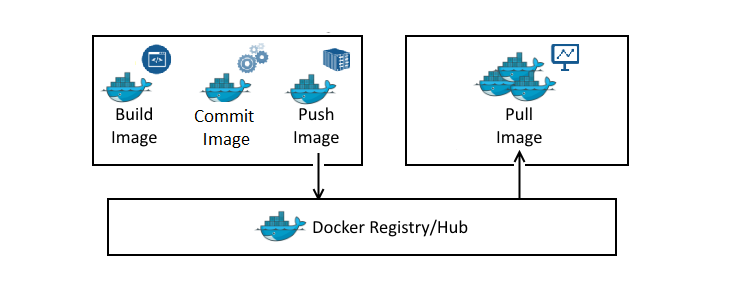

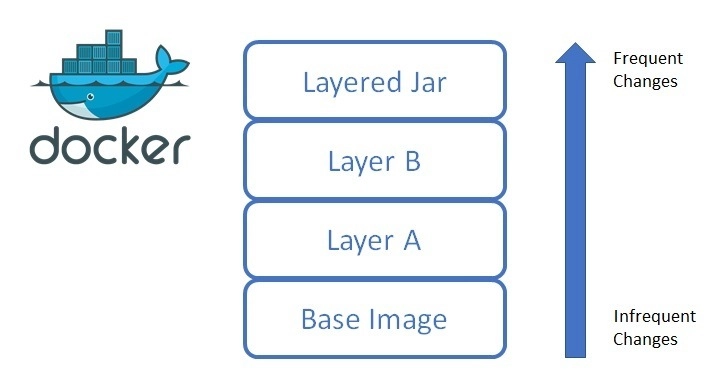
ARG vs ENV
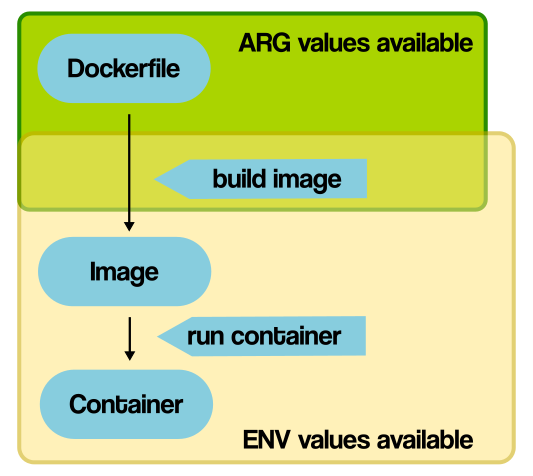
- Write Dockerfile, .dockerignore -> build -> run
Dockerfile 
DockerFile : 로컬환경 자원을 사용해 빌드한 파일을 인스턴스에 넘겨줌
DockerFile-with-build : 인스턴스 내부의 자원을 사용해 빌드 -> 시간이 비약적으로 증가함
- OPTION
- FROM : 생성할 이미지의 base image
- COPY : 로컬의 파일을 이미지에 복사
- EXPOSE : 노출할 포트 지정
- ENTRYPOINT : 컨테이너가 시작될 때 수행할 명령어를 지정
example


1 2 3 4
FROM openjdk:11-jdk-slim-buster COPY build/libs/login-service.jar app.jar EXPOSE 8080 ENTRYPOINT ["java", "-jar", "/app.jar"]
1 2
FROM nginx COPY nginx.conf /etc/nginx/nginx.conf
1 2
FROM nginx:alpine ADD . /usr/share/nginx/html
1 2 3 4 5 6
FROM node:latest WORKDIR /app ADD package*.json ./ RUN npm install ADD . . -> first . : all the files in the folder, second . : to /app folder CMD node index.js
.dockerignore
- ignore files, folders
- example
1 2 3 4 5
node_modules Dockerfile .git *.gulp.js folder/**
docker build- Build an image from a Dockerfile
- example
- docker build –tag website:latest .
- docker build -t user-service-api:latest .
docker run- Run a command in a new container
- example
- docker run –name user-api -d -p 3000:3000 user-service-api:latest
Volumes

Versioning
docker tag- Create a tag TARGET_IMAGE that refers to SOURCE_IMAGE
- docker tag SOURCE_IMAGE[:TAG] TARGET_IMAGE[:TAG]
- example
- docker tag amigoscode-website:latest amigoscode-website:1
- docker tag amigoscode-website:latest amigoscode-website:2
Example
- docker pull nginx:alpine
- docker pull node:alpine
nginx.conf
1
2
3
4
5
6
7
8
9
10
11
12
13
14
15
events {}
http {
upstream app {
server 172.17.0.1:8080;
}
server {
listen 80;
location / {
proxy_pass http://app;
}
}
}
docker build -t user-service-api:latest
docker build -t website:latest
Docker Registry
- A Docker registry stores Docker images.



CI/CD : Docker + Jenkins
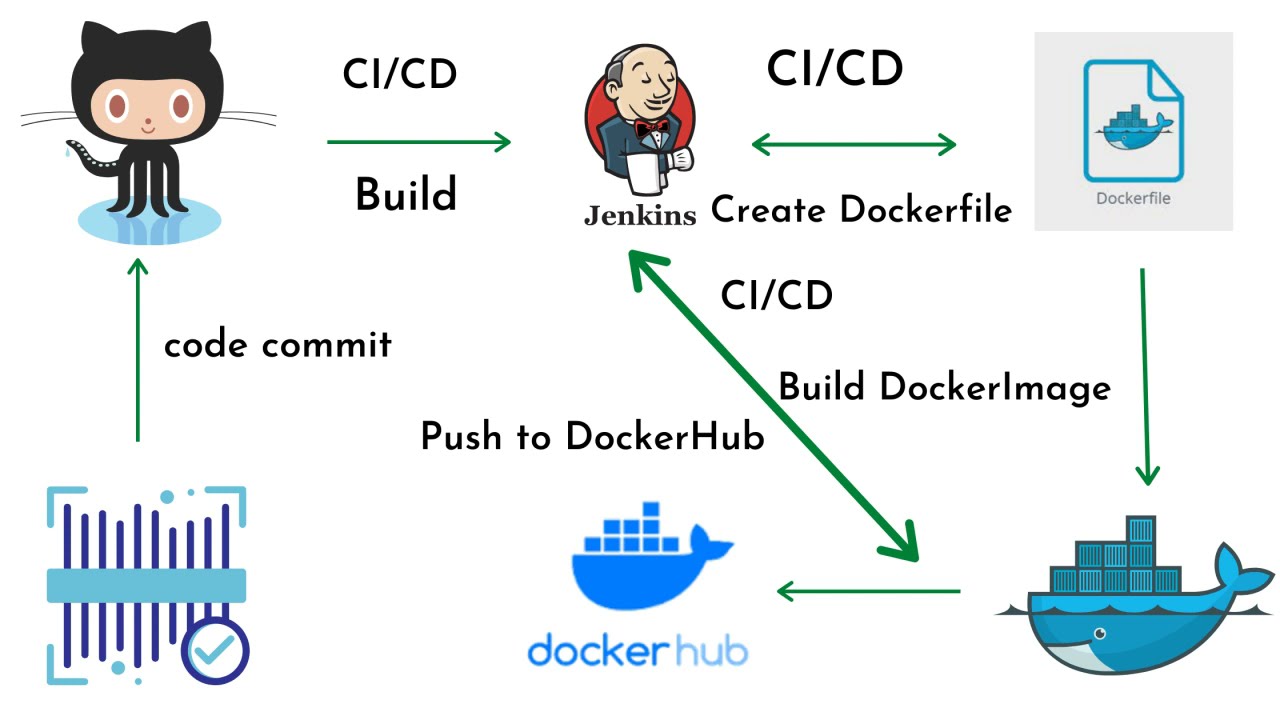
Nginx
1
a web server that can also be used as a reverse proxy, load balancer, mail proxy and HTTP cache.
- HTTP Web Server
- Reverse Proxy Server for load balancer
- maximum performance and stability.
- Nginx uses an asynchronous event-driven approach, rather than threads, to handle requests.
- it provide predictable performance under high loads. (concurrency, high performance and low memory usage)
- Nginx is easy to configure in order to serve static web content or to act as a proxy server
Nginx in Docker
1
2
3
4
5
NGINX is the native load balancer in Docker EE.
NGINX is the most widely deployed Ingress controller for Kubernetes.
Whether you choose Docker Swarm or Kubernetes,
NGINX is the best choice for scaling container orchestration traffic.
[Reference]
https://subicura.com/2017/01/19/docker-guide-for-beginners-2.html
| Docker and Kubernetes Tutorial | Full Course [2021] https://youtu.be/bhBSlnQcq2k |



Comments powered by Disqus.